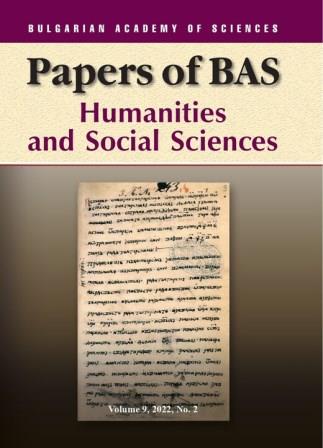Bulgaria’s policy on the “Jewish Question” during World War II
Bulgaria’s policy on the “Jewish Question” during World War II
Author(s): Daniel Vatchkov, Peter Stoyanovich, Rumyana Chukova, Spas Tashev, Veselin Yanchev, Svetoslav Zhivkov, Milko Palangurski, Rumen Borisov, Silvia Avdala, Georgi Bozduganov, Naoum Kaytchev, Kiril Topalov, Dimitar Nedyalkov, Vassil Nikolov, Boris Stoyanov, Slavi Slavov, Plamen Pavlov, Angel Dimitrov, Snezhana Dimitrova, Konstantin Golev, Rositsa Lelyova, Aleka Strezova, Atanas Zhdrebev, Nikola Avreyski, Boryana Goleva, Hristo Milkov, Aleksandar Grebenarov, Angel Zlatkov, Aleksandar Zlatanov, Dimitar Tyulekov, Georgi Mandev, Nikolay Tsekov, Vili LilkovSubject(s): History, Recent History (1900 till today), WW II and following years (1940 - 1949)
Published by: Издателство на БАН „Проф. Марин Дринов“
Summary/Abstract: In the statement, 33 leading Bulgarian scholars examine the historical facts and draw the following main conclusions in regard to Bulgaria’s policy on the “Jewish Question” in the years of World War II: ● Anti-Semitic legislation was introduced and implemented in Bulgaria. This policy line was a consequence of the influence of the external factor, in this case Hitler’s Germany, which at that time dominated almost all of Europe and universally imposed racist and anti-Semitic ideology. Anti-Semitic measures were introduced in all countries under the direct or indirect control of the Reich, and Bulgaria was no exception in this regard. However, the Law for Protection of the Nation had one significant difference from the Nuremberg legislation - Bulgarian Jews were not deprived of their citizenship and were not to be expelled. ● The deportation of the Jews from Vardar Macedonia and Western Thrace was solely and entirely a German initiative. The Bulgarian authorities were involved in the preliminary stage of this action as a result of the conditions laid down as early as April 1941, under which Bulgaria assumed the administration of these territories belonging to the Reich. This assertion is confirmed by the judgments in the Eichmann, Beckerle, and Fritz von Hahn trials, which did not impute guilt to the Bulgarian Kingdom. ● The rescue of the Bulgarian Jews was a courageous act of opposition to the German policy of implementing the “Final Solution”. It came as a result of the interaction of representatives of state institutions, public organizations, individual groups, and persons. This synchronicity of action determined the lasting nature of Bulgaria’s refusal to send its Jews to the death camps. ● The almost unhindered transit that the Bulgarian state provided to Jews fleeing the Holocaust zone, including in the worst years - 1942-1944 - is eloquent proof that the government did not share the extreme anti-Semitic policy of the Third Reich.
Journal: Papers of BAS. Humanities and Social Sciences
- Issue Year: 9/2022
- Issue No: 2
- Page Range: 118-126
- Page Count: 9
- Language: English

